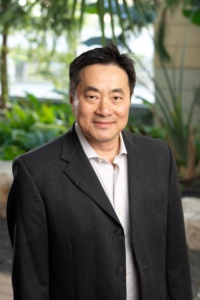University of Wisconsin–Madison Chancellor Jennifer Mnookin recently unveiled the Wisconsin Research, Innovation, and Scholarly Excellence (RISE) Initiative, a bold and transformative program designed to position the university as a global leader in research and innovation. This initiative, which emphasizes interdisciplinary faculty hiring and enhanced research infrastructure, aims to drive campus-wide collaboration and address some of society’s most pressing challenges.
The first focus area of this ambitious program is RISE-AI, an initiative poised to establish UW-Madison as a powerhouse in artificial intelligence. By adding up to 50 new faculty positions across disciplines, RISE-AI seeks to expand the university’s network of AI innovators and ensure that AI expertise permeates every corner of campus.
To help ensure the success of RISE-AI, campus leadership has assembled a group of thought leaders—renowned experts in AI who will guide the initiative.
The School of Computer, Data & Information Sciences (CDIS) is home to numerous faculty who have long been at the forefront of AI innovation, including Jerry Zhu. As the Steve Kleene Professor in the Computer Sciences Department, Zhu was tapped as a thought leader for this initiative because of his extensive background in machine learning.

His research initially focused on speech recognition, which sparked his interest in the foundational principles of AI and the rapidly evolving field of machine learning. Since joining the University of Wisconsin–Madison in 2005, he has dedicated his career to advancing machine learning research.
His role as a thought leader serves as a connection between university leadership, including the Chancellor and the Provost, and departments across campus. Zhu is also engaging with other departments to understand their perspectives on the role of AI in their fields.
“We are a listening device, we want to hear what AI means to everybody on campus. Many areas are asking a lot of interesting questions on how to take this AI wave and actually turn it into something that will advance their field,” says Zhu.
Zhu notes that even beyond the RISE-AI initiative, departments across campus are actively seeking to hire faculty with AI expertise. For instance, he is currently serving on a hiring committee for the School of Music, where he is helping to define and shape a new faculty role that bridges music and AI. This effort involves exploring how AI can contribute to the field of music and determining the potential impact of such interdisciplinary collaboration.
As part of the RISE-AI initiative, departments across campus will be recruiting faculty with expertise in artificial intelligence. Within CDIS, all three departments will be seeking new hires, expanding its collective expertise in AI and its broader implications.
Remzi Arpaci-Dusseau, Director of the School of Computer, Data & Information Sciences and Special Advisor to the Provost for computing, says RISE-AI reflects the importance of AI across a variety of disciplines.
“The RISE-AI initiative highlights the increased importance of artificial intelligence not just as a core intellectual discipline within computer science, but also as a key technology shaping every field of inquiry,” says Arpaci-Dusseau.
While the primary focus of RISE-AI is recruitment, Zhu’s involvement highlights the critical need to cultivate a supportive ecosystem for new faculty. His goal is to guide administrators in ensuring that newly hired faculty are well-integrated and connected, preventing isolation and fostering a collaborative and inclusive environment.
In addition to hiring, Zhu also hopes that this initiative leads to collaboration across campus and across disciplines.
“This initiative encourages new and widespread interdisciplinary collaboration. There will be more AI experts on campus. Any department can benefit from this collection of expertise, and I hope they can utilize it. Part of our goal is to make connection and collaboration easier,” says Zhu.
While it may not be immediately apparent, the connections between AI and traditional humanities fields are both natural and increasingly significant as technology develops.
“As we’ve seen with recent Nobel Prize announcements in Physics and Chemistry, AI is transforming how we do science; by hiring large numbers of faculty both within CDIS and across colleges, RISE-AI will broadly help to drive innovation forward at UW-Madison for decades to come,” says Arpaci-Dusseau.
Zhu emphasizes that the impact of the initiative goes beyond the university and is closely aligned with the Wisconsin Idea, which guides the institution’s mission to benefit the state. He highlights that the initiative’s guiding principles are rooted in the Wisconsin Idea, with a key focus on establishing a strong translational component to transform research into commercial applications.
RISE-AI is one part of a trio of initiatives. RISE-EARTH focuses on sustainability and RISE-THRIVE science of immunology and the study of the healthspan.
“I look forward to not just RISE AI, but all the RISE programs. I can clearly see how different RISE programs work with each other. It’s natural to say that RISE-EARTH and RISE-THRIVE need AI. I can also see why they are a great playground for advancing AI technology,” says Zhu.
Learn more about RISE-AI.